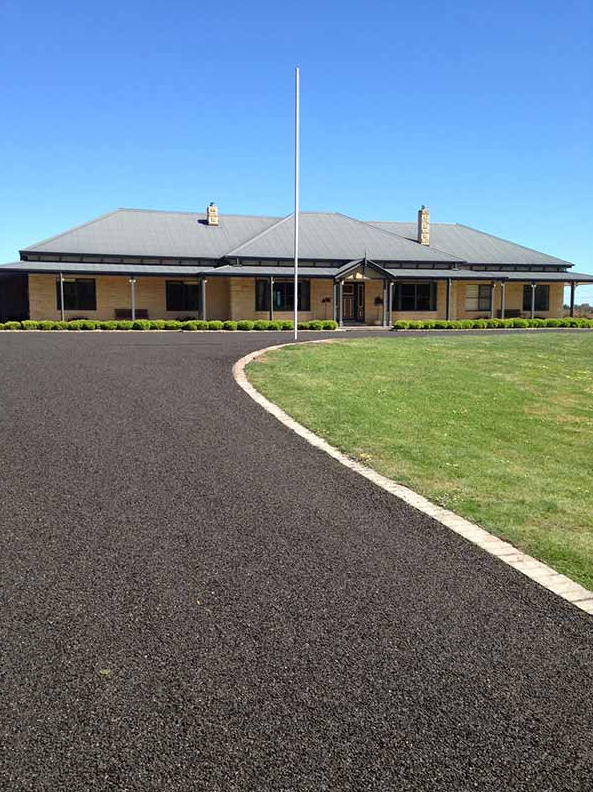When it comes to selecting a surface for roads, driveways, loading bays, or industrial yards, one of the most common questions property owners and developers ask is: Can asphalt really handle heavy loads? The short answer is yes—but only when it’s built correctly. At Hornsby Road Tek, we specialise in designing and constructing asphalt surfaces in Hornsby, NSW that are purpose-built to withstand weight, pressure, and repeated traffic from heavy vehicles. Let’s explore what makes asphalt a dependable choice and what factors determine its long-term performance under load.
The Strength of Asphalt: More Than Meets the Eye
Asphalt isn’t just a top layer of black material—it’s a complex, engineered surface made from layers of bitumen and aggregate laid over a carefully prepared base. When properly designed, it offers outstanding flexibility, load distribution, and durability.
Benefits of asphalt for load-bearing applications:
- Flexible and less prone to cracking under pressure
- Distributes load efficiently through its layers
- Quick to install and repair when needed
- Resilient in a variety of weather conditions
Asphalt is widely used on highways, freight terminals, airport runways, and commercial driveways—clear proof that it can handle serious weight.
What Makes an Asphalt Surface Strong Enough?
1. Base Preparation and Compaction
The foundation is critical. A well-compacted base distributes the load and supports the asphalt layer above.
- Weak or improperly compacted bases lead to rutting and deformation
- Crushed rock or stabilised sub-base is often used for heavy-duty surfaces
- Proper drainage is essential to prevent water undermining the structure
At Hornsby Road Tek, we assess the site soil and usage requirements to determine the right base specification for each project.
2. Asphalt Thickness and Layering
Thickness matters. Thicker asphalt can handle heavier weights by absorbing and spreading the load.
- Light-use driveways may require 25–30mm of asphalt
- Commercial driveways or light truck access may require 40–60mm
- Industrial or freight areas may need 75mm or more, often laid in multiple layers
We tailor the thickness to the load type—whether it’s private vehicle traffic or regular heavy truck movements.
3. Quality of Materials
Not all asphalt is created equal. The mix design should match the expected traffic load and climate.
- Coarse aggregates improve strength and durability
- Specialised mixes can be used for increased skid resistance or deformation resistance
- Bitumen content must be accurately controlled to avoid premature wear
We only use high-grade, road-standard materials for every project in Hornsby to ensure lasting results.
4. Correct Installation and Compaction
Even the best materials won’t perform without skilled application. Proper laying technique and compaction are critical for load-bearing strength.
- Multiple passes with the right roller equipment
- Edge sealing and joint treatments for uniformity
- Careful temperature control during application
At Hornsby Road Tek, our experienced team ensures every surface is compacted and cured to the highest standard.
Signs Your Asphalt Surface Isn’t Coping with Load
If your existing surface is showing signs of wear, it might not be suitable for the weight it’s carrying.
Look out for:
- Rutting or depression under wheel paths
- Surface cracking or flaking
- Edge crumbling or base pumping
- Potholes developing near turning areas or loading zones
These are indicators that either the base or the asphalt layer was underbuilt—or that the surface has reached the end of its design life.
Asphalt vs Other Materials for Heavy Load Areas
Some clients consider concrete or spray seal for heavy-use areas, but asphalt often strikes the best balance between strength, flexibility, cost, and ease of repair.
- Concrete is strong but rigid, more expensive, and prone to cracking without joints
- Spray seal is ideal for rural roads but not suited to constant heavy traffic
- Asphalt is durable, easier to maintain, and performs well under repeated loading
Conclusion
Asphalt can absolutely handle heavy loads—when it’s designed, constructed, and maintained correctly. Whether you’re managing an industrial yard, commercial driveway, or high-use access road, asphalt provides a reliable and cost-effective solution. At Hornsby Road Tek, we deliver robust asphalt surfacing built specifically for the demands of heavy vehicle traffic across Hornsby, NSW. Contact our team today to book a site assessment or request a tailored quote for your next high-performance surface.
Call us on: 02 5135 3012
Click here to find out more about Hornsby Road Tek
Click here to complete our contact form and see how we can help with your Asphalt and Bitumen Surfacing needs.

